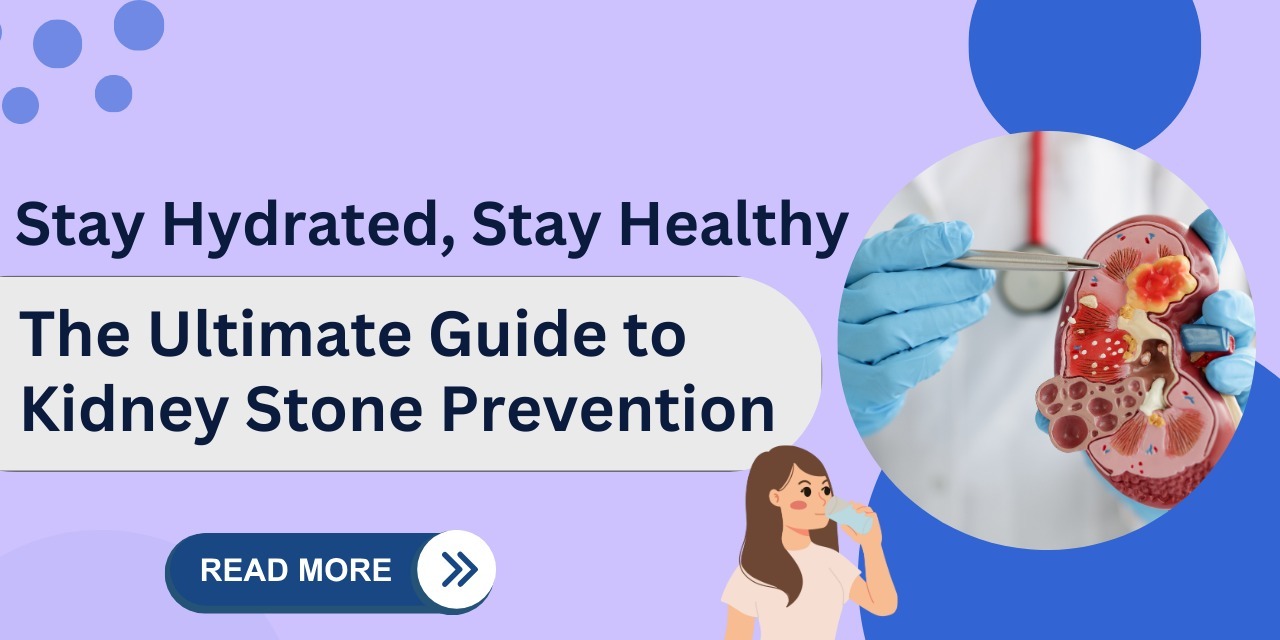Kidney stones are hard deposits made of minerals and salts that form inside your kidneys. These stones can affect any part of the urinary tract, from the kidneys to the bladder. Often, stones form when the urine becomes concentrated, allowing minerals to crystallize and stick together.
Causes of Kidney Stones
Several factors can contribute to the formation of kidney stones:
- Dehydration: Not drinking enough water can lead to concentrated urine, which allows minerals to crystallize and form stones.
- Diet: High intake of sodium, protein, can increase the risk of certain types of kidney stones.
- Obesity: Excess body weight can alter the chemical balance of urine, making it more conducive to stone formation.
- Medical Conditions: Certain conditions, such as hyperparathyroidism, gout, and urinary tract infections, can increase the risk of kidney stones.
- Family History: A family history of kidney stones can increase your risk, as certain genetic factors may make you more prone to stone formation.
Symptoms of Kidney Stones
Kidney stones may not cause symptoms until they move around within the kidney or pass into the ureter. When this happens, you may experience:
- Severe pain in the side and back, below the ribs
- Pain that radiates to the lower abdomen and groin
- Pain that comes in waves and fluctuates in intensity
- Pain during urination
- Pink, red, or brown urine
- Cloudy or foul-smelling urine
- Nausea and vomiting
- Persistent need to urinate
- Urinating more often than usual
- Fever and chills if an infection is present
Diagnosis
If you suspect you have a kidney stone, your doctor may recommend several diagnostic tests, such as:
Imaging Tests: X-rays, CT scans, or ultrasounds to visualize the stones.
Urine Testing: To check for crystals, bacteria, blood, and other substances.
Blood Tests: To identify levels of calcium, uric acid, and other substances that can lead to stone formation.
Analysis of Passed Stones: To determine the stone’s composition and help prevent future stones.
Treatment Options
Treatment for kidney stones varies depending on the size and type of stone, as well as the severity of your symptoms:
- Small Stones with Minimal Symptoms:
- Drinking Water: Drinking 2-3 quarts of water a day can help flush out the urinary system.
- Pain Relievers: Over-the-counter pain medications like ibuprofen or acetaminophen.
- Medical Therapy: Medications to help pass the stone.
- Large Stones or Severe Symptoms:
- Medication: To dissolve uric acid stones.
- Percutaneous Nephrolithotomy: A surgical procedure to remove large stones through a small incision in the back.
- Cyfeofcopy: A thin scope is inserted into the urethra and bladder to remove or break up stones.
- Rirs: The latest technique uses lasers to remove kidney stones without any cutting and bloodlessly.
Preventing Kidney Stones
Preventing kidney stones involves several lifestyle changes and dietary adjustments:
Stay Hydrated: Drink plenty of water throughout the day to keep your urine diluted.
Adopt a Balanced Diet: Limit salt, animal protein Include foods rich in calcium and low in oxalate.
Monitor Medications and Supplements: Be cautious with over-the-counter medications and supplements that may increase your risk of stones.
Regular Check-ups: Routine medical check-ups can help monitor your risk factors and prevent the recurrence of kidney stones.
Conclusion
Understanding their causes, symptoms, and prevention strategies can help you manage and reduce your risk. By staying hydrated, adopting a balanced diet, and working closely with your healthcare provider, you can maintain good urinary health and prevent the formation of kidney stones.
For those seeking expert care, Goel Kidney Care offers comprehensive urology services. A standout specialist in this field is Dr. Tanmaya Goel a kidney specialist doctor in Jalandhar who is often described as embodying the ideal qualities of a doctor. Dr. Goel, an alumnus of King George Medical College, Lucknow, and kmc Manipal where he completed his MBBS and MS, is among The leading doctor in the region to attain a Master of Chirurgy (MCh). You can visit if you need For more details please contact us on : 01814644442

